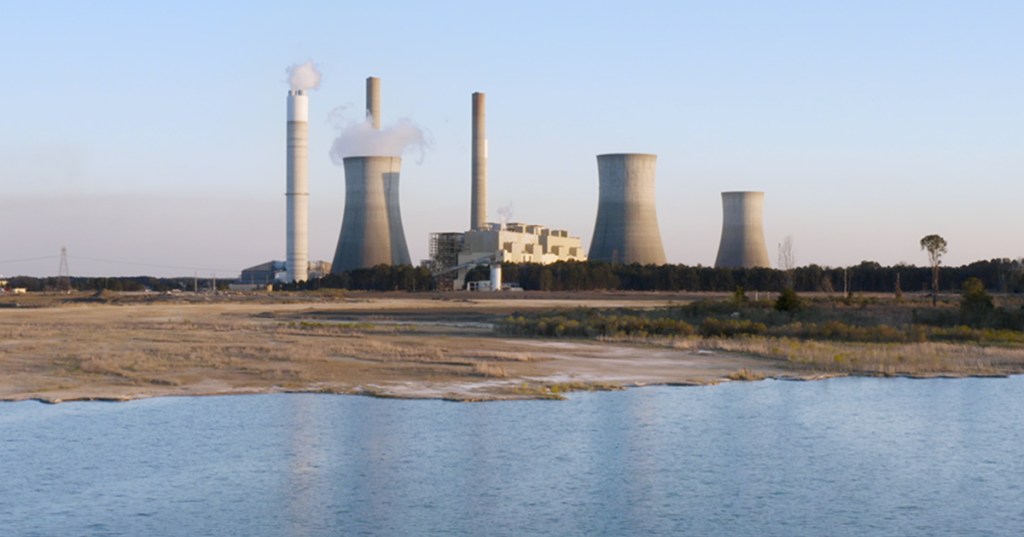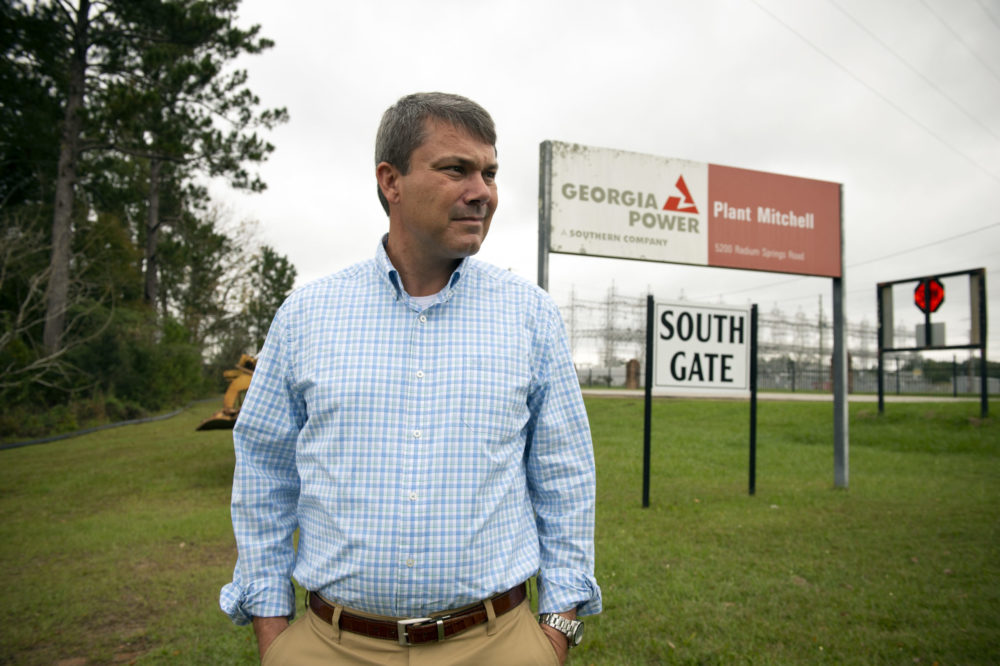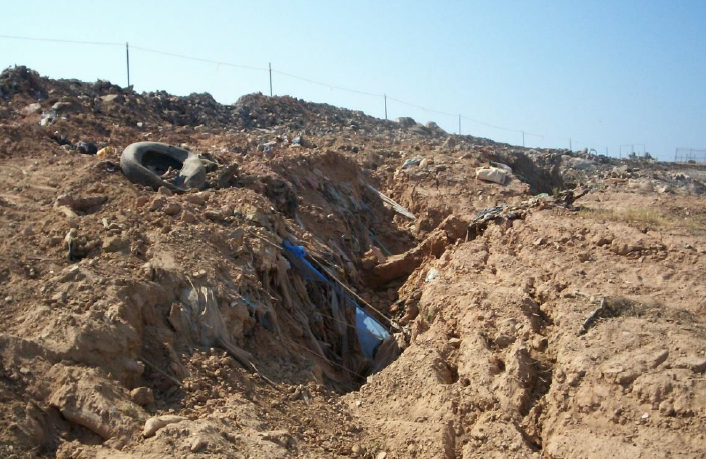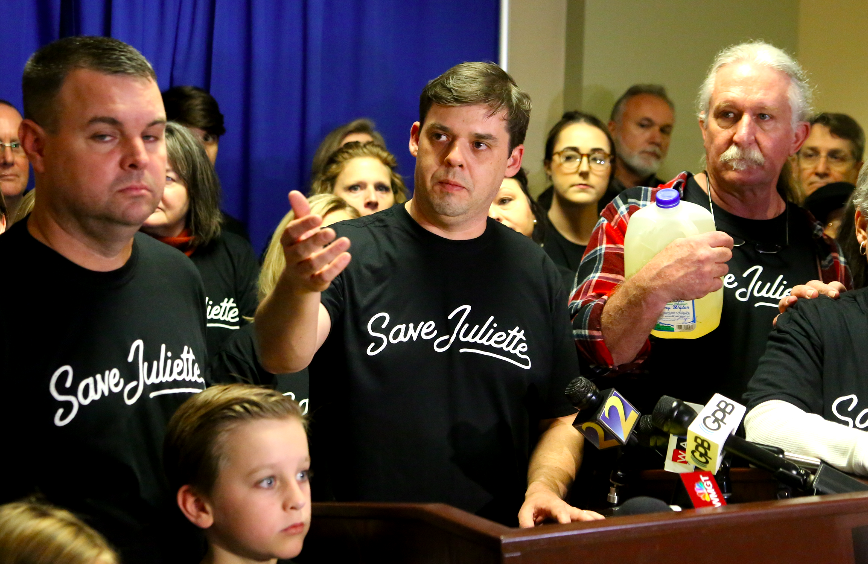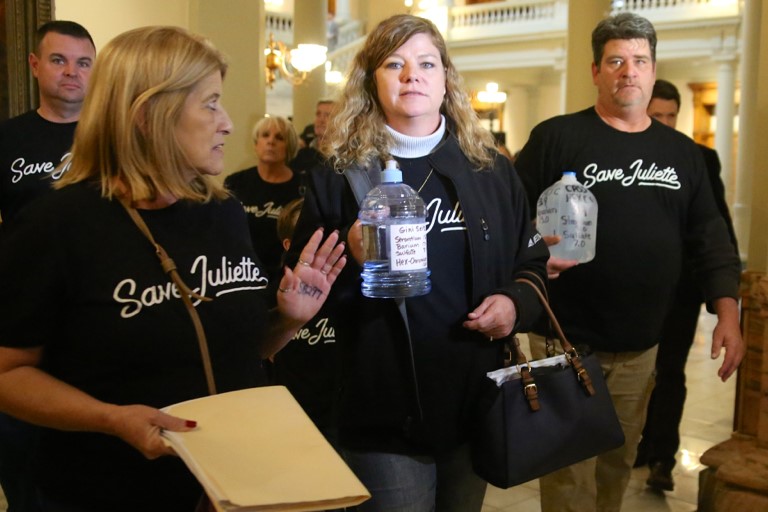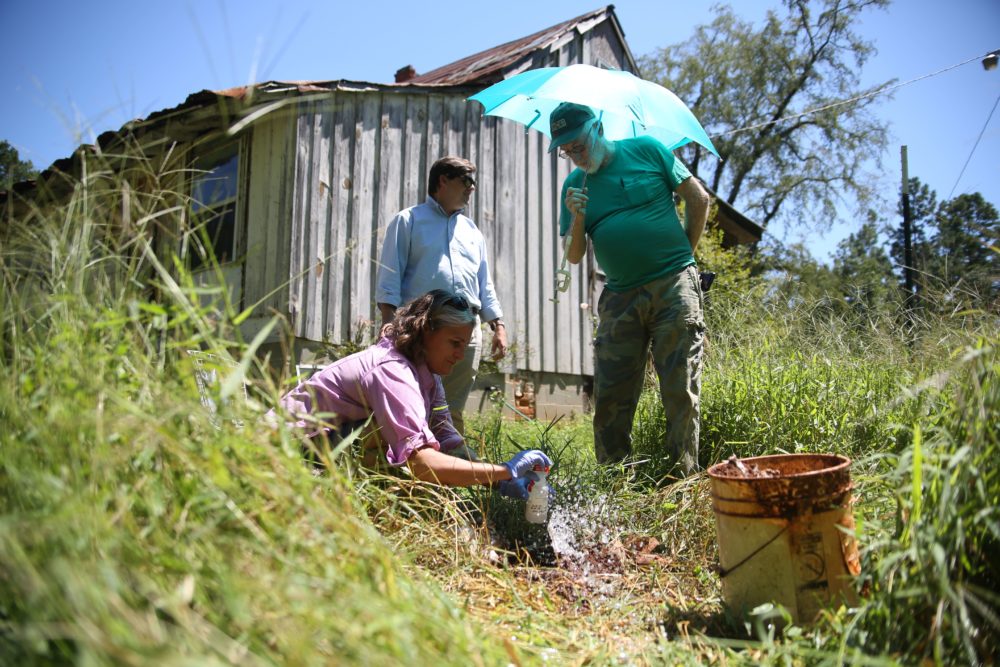Georgia’s utilities have slowly shifted away from the burning of coal and are now dealing with the legacy of toxic ash the process leaves behind. As regulators weigh power companies’ ash disposal plans, people who live near coal ash ponds are worried that the waste is tainting their groundwater, lowering their property values and damaging their communities’ economic development. This investigative series by journalist Max Blau chronicles the big business of waste, the politics of energy, and the health effects that may touch generations to come.
Sunken Costs: Coal Ash in Georgia

View Articles
The coal plant next door
Near America’s largest coal-fired power plant, toxins are showing up in drinking water and people have fallen ill. Thousands of pages of internal documents show how one giant energy company plans to avoid the cleanup costs for coal ash. By Max Blau Mark Berry raised his right hand, pledging to tell the whole truth and…
Lawmakers renew push to remove coal ash from unlined ponds
The fight over the future of Georgia Power’s coal ash ponds has returned to the Gold Dome. And its outcome could influence whether thousands of Georgians will need to worry about groundwater contamination potentially caused by the toxic waste sites. Democratic lawmakers have announced legislation intended to protect Georgians from possible harmful health impacts of coal…
Georgia Power’s land buys: A cover for pollution?
Sunken Costs: The utility giant’s quiet purchasing spree could shield it from coal ash cleanup expenses This article was produced in partnership with ProPublica, a nonprofit newsroom that investigates abuses of power. Georgia Health News is a member of the ProPublica Local Reporting Network. By Max Blau Over the past several years, utility giant Georgia…
How a small town became ground zero for landfill collapses
By Max Blau Carolyn Dorondo couldn’t escape the smell of garbage. There were days last year when she couldn’t go outside due to the smell. Some nights, the stench wafted into her Ball Ground home, awakening her from a restful sleep. The odor grew so foul that Dorondo, along with other residents of Cherokee County,…
Lawsuit says Plant Scherer coal ash is ‘poisoning’ locals
Marvin Bowdoin, who had sold his neighbors on the utility’s promises of more jobs and greater tax revenues for the community, owned a store in the small town of Juliette that sold groceries and gas to the company’s employees. But over 35 years later, his grandson Tony Bowdoin, who worked at the family’s store for decades, discovered his home’s drinking water was full of contaminants. Last fall, he was diagnosed with Stage IV colon cancer, and is still battling it today.
Officials, riverkeeper team up to arrange Juliette water tests
The search for answers over whether waste from America’s largest coal-fired plant has tainted drinking water in a small central Georgia town has united local officials and a riverkeeper group.
County launches project to bring clean water to Juliette residents
People living near Plant Scherer, America’s largest coal-fired plant, are one step closer to not having to rely on tainted water from private drinking wells. But the decision hasn’t quelled local residents’ demands that Georgia Power remove coal ash from the plant site in Central Georgia.
How publicity killed Juliette water testing plan
On the same February morning when Juliette residents marched into Gov. Brian Kemp’s office demanding he support legislation to remove coal ash from their town, Monroe County Manager Jim Hedges sent an email to nationally known scientist Avner Vengosh, asking for help.
Sierra Club contests PSC decision on Georgia Power coal ash request
State regulators last month approved a Georgia Power request to charge customers for the costs of cleaning up toxic waste produced by its coal-fired plants. But an environmental organization is contesting that decision, claiming the utility failed to disclose how it would spend more than $500 million it had requested for environmental compliance.
County offers clean drinking water to residents near Scherer
Over the past month, people in the Georgia town of Juliette have expressed fears that nearby Plant Scherer, America’s largest coal-fired plant, has caused their water to be contaminated with coal ash. Their outcry, along with a flood of statewide media coverage, has led local officials to offer free water to any local residents who need it.
A showdown over what’s in the water
In a small Georgia town, residents worry that their neighbor, a giant coal plant, has tainted their drinking water. Some are relying on the help of the Altamaha Riverkeeper to find answers.

